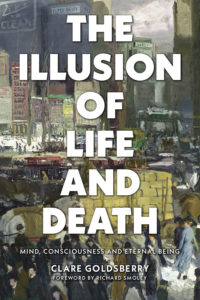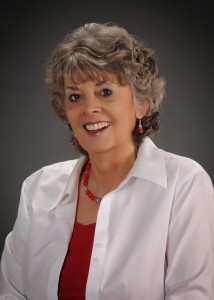After helping her significant other, Brent, go through eighteen months of living with and eventually dying from esophageal cancer, Clare Goldsberry wanted to share not only his story of fearless living and graceful dying, but also include the broader picture of what living fearlessly and dying gracefully means for all of us. As a Hospice volunteer for two years after Brent’s death, she became acutely aware of just how important it is not only for the dying person and the person’s family and friends to understand living and dying.
With The Illusion of Life and Death: Mind, Consciousness, and Eternal Being (Monkfish Book Publishing Company, November 16, 2021), Goldsberry helps readers understand, “The end of this lifetime is as important and miraculous as the beginning. It truly a time to celebrate the life—and the death—of the person.”
Sharing the wisdom and knowledge of the ancient sages, spiritual teachers like the Buddha, philosophers like Plato and Seneca, and modern-day quantum physicists, Goldsberry walks us through the mystery of death and dying—exploring the meaning and purpose of life. Drawing from her insights as a Buddhist practitioner, her studies of Christianity, Ageless Wisdom, Hinduism, and her partner’s cancer journey, she provides a profound view of living and dying as seen through the ages by those who have sought answers regarding the most mysterious aspect of life—this thing we call death.
The Illusion of Life and Death is arranged in four sections: What is Life; Illness, Old Age, and Death; Looking Deeper Into Death; and finally, What Happens After Death. Goldsberry takes on topics such as karma and reincarnation, suffering, living consciously, understanding consciousness and reality, the mind, learning to embrace what is, nonattachment vs. detachment, the business of illness and the cost of keeping us alive, as well as dying with grace and dignity, and suicide.









